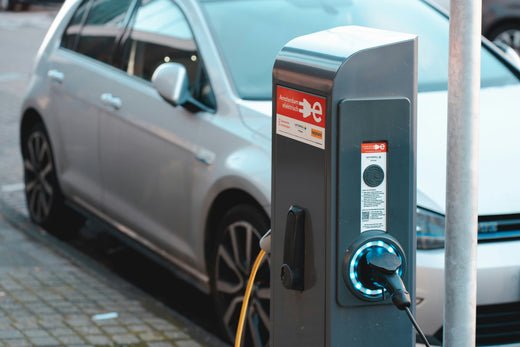Electric vehicles (EVs) are often touted as cost-effective alternatives to gas-powered cars, but how much money do you really save? Let's break down the numbers to answer some common questions.
Assumptions for Our Comparison:
- Average price of gas: $3.02 per gallon
- Average price of electricity: 16.83 cents per kilowatt-hour (kWh)
- Average fuel efficiency of a gas-powered car: 31.7 miles per gallon (MPG)
- Average energy efficiency of an EV: 3 miles per kWh
Prices and efficiencies may vary depending on location, driving habits, and the economy, but these averages give us a solid baseline for comparison.
How Much Does It Cost to Charge an Electric Car for 300 Miles?
To calculate this, we’ll use the average price of electricity, 16.83 cents per kilowatt-hour (kWh), and the average energy efficiency of an EV, 3 miles per kWh. For a range of 300 miles:
Conclusion: It costs approximately $16.83 to charge an EV for 300 miles.

Is It Cheaper to Charge an Electric Car or Pay for Gas?
For a gas-powered car, we’ll use an average fuel efficiency of 31.7 miles per gallon (MPG) and an average gas price of $3.02 per gallon. Let’s assume both vehicles have a range of 300 miles. We’ll calculate the cost to fuel the gas-powered car and the cost to charge the EV.
Comparing the two:
- Cost to charge an EV for 300 miles: $16.83
- Cost to fuel a gas-powered car for 300 miles: $28.58
Conclusion: Charging an EV is about $11.75 cheaper than paying for gas over the same distance.
When considering just fuel costs, EVs are cheaper to operate. However, additional factors like purchase price, maintenance costs, and battery replacement should also be considered.
Is It Cheaper to Charge an Electric Car at Home or at a Charging Station?
Charging at home is typically more economical. With an average electricity rate of 16.83 cents per kWh, home charging costs $16.83 for 300 miles.
Public charging stations often cost more than home charging due to convenience and additional service fees. Prices can range from $0.25 to $0.50 per kWh, meaning it may cost between $25 and $50 to fully charge your EV to 300 miles. This makes public charging potentially more than twice as expensive as home charging. Even so, it may still be cheaper than fueling a gas-powered car.
Conclusion: Charging an EV at home is generally cheaper than using public charging stations. If your electricity rate is lower during off-peak hours, the savings can be even greater. Use a gas vs. electric car cost calculator to customize calculations based on your electricity rates and driving habits.
Does Charging a Car at Home Use a Lot of Electricity?
Charging an EV adds to your electricity bill, but it’s comparable to other household energy uses. Charging a car for 300 miles (100 kWh) is equivalent to:
Running a dishwasher daily for about a month
Using an air conditioner for 50 hours
If you’re concerned about costs, charging during off-peak hours can help reduce rates.
Do You Actually Save Money with an Electric Car?
Yes, but the extent of your savings depends on several factors:
- Fuel Costs: As shown above, EVs are cheaper to power per mile than gas-powered cars.
- Maintenance: EVs have fewer moving parts, reducing maintenance costs over time.
- Upfront Costs: While EVs can be more expensive to purchase, tax incentives and lower operating costs can offset this.
Make Charging Easier with EV Hover
Switching to an electric car can save you money, especially if you charge at home and take advantage of off-peak rates. Whether you’re concerned about fuel savings or reducing your environmental impact, EVs offer a compelling alternative to traditional vehicles.
Looking for help storing your EV charging cable? Shop EV Hover today to charge your EV at home with ease, avoiding clutter and removing trip hazards.

